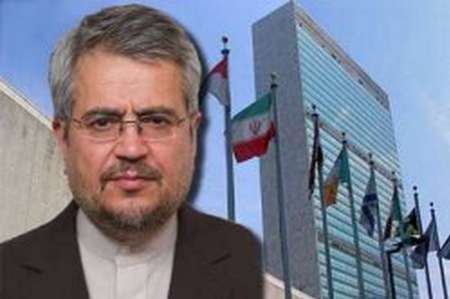Iran’s Ambassador and Permanent Representative to the United Nations (UN) Gholamali Khoshroo pointed to occupation, wars of attrition, terrorism and ethnic cleansing as the main causes of human trafficking.
Addressing the Security Council’s Wednesday debate on the Human Trafficking in Conflict Situations, Khoshroo said that trafficking in persons, sexual abuse and slavery are cases of major international challenges.
Surely, the ambassador stressed, such a sinister phenomenon (human trafficking) is also resulted from the aggressive and interfering policies which, in turn, will lead to mounting waves of immigrants, asylum seekers and human smugglers’ activities.
The main duty of the Security Council is to fight against those phenomena, not against their outcomes, the ambassador noted.
If the UN Security Council takes into consideration just the outcomes of those wrong policies, it will not be successful in combating global challenges to this end, Khoshroo added.
The critical situations in the Middle East region and the North Africa have triggered creation of illegal armed forces and terrorist groups, and has consequently, weakened the legitimate governments there, he underlined.
The terrorist and extremist groups including Daesh have targeted religious and ethnic minorities, women and children in particular, Khoshroo added describing the activities of those groups as massacre, war crimes and crimes against humanity.
The first step to solve the problem is to fully respect the nature of countries’ sovereignty based on the Charter of the UN, and the next step is to respect the rights of the asylum seekers and immigrants and make a halt to the violations and the provocative actions against the religious and ethnic minorities.
The ambassador concluded his remarks by calling for international cooperation under the International Framework for Action to Implement the Trafficking in Persons Protocol that has already been approved by the UN.
IRNA
R.S

